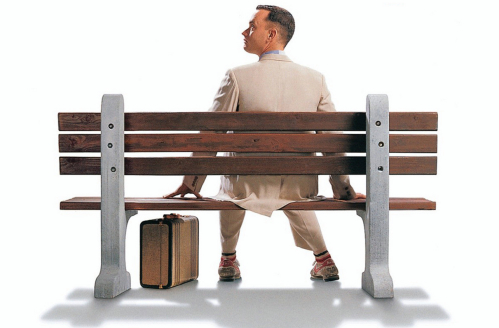|
In preparing for my trip to Africa, I've had the opportunity to review the horrific history of white racism associated with that continent. Starting with the slave trade and ending with apartheid, racism dominated the last half millennium and involved the exporting of over 10 million slaves. Most European colonial powers took part in this despicable legacy of racism. The United States followed the European lead and went far beyond what the racism of the European colonial powers ever imagined. This sad history includes both the shackling of one's body and one's mind.
For Biko's involvement in the protests, the apartheid government viewed him as subversive and finally arrested him on August 18, 1977. Less than a month later, Stephen Bike was dead-having been beaten to death while in the custody of the police. The white officials initially claimed that he died due to a hunger strike. However, the white journalist, Donald Woods, photographed Biko's head wounds. Confronted with photographs of Biko's massive head wounds, the authorities then contended that Biko had committed suicide with a hammer. Because of the photographs and anti-apartheid sentiments, Woods had to leave South Africa for his own safety and lived in exile in England until his death in 2001. Woods received the Order of the British Empire for his work in helping to bring down the apartheid government. Biko's legacy is many faceted. He worked to free blacks from physical oppression under apartheid. However, he also worked to free the mental chains of oppression. Biko echoed many of the ideas of W. E. B. Dubois who spoke of "this sense of always looking at one's self through the eyes of others, of measuring one's soul by the tape of a world that looks on in amused contempt and pity..." Biko applied Dubois' double-consciousness to the plight of black Africans. Biko wanted his people to be free of the doubts about themselves, which white supremacists placed upon black South Africans. Biko was a leader that laid his life on the line. He said, "It is better to die for an idea that will live, than to live for an idea that will die." He also predicted correctly, "In time, we shall be in a position to bestow on South Africa the greatest possible gift-a more human face." In a few months, I will be able to see that more human face of South Africa.
Visit The Mentors and Me page to read more about this topic.
Forrest Gump, "Stupid is as stupid does." Visit the Stupid is As Stupid Does page to read more about this topic.
|







 One of the leaders who
addressed this body/mind enslavement was Stephen Biko. He said,
"The most potent weapon in the hands of the oppressor is the mind of
the oppressed." As a student at the University of Natal Medical
School, Biko began his work in the Black Consciousness Movement (BCM).
By 1973, the white minority government attempted to shun him into
oblivion for standing up to apartheid. The government ordered him
not to speak publicly to more than one person at a time and no one
could openly mention any of his ideas. Even with this speech ban,
Biko and the BCM were instrumental in organizing a protest movement
in Soweto, which is a township of Johannesburg. (Soweto is an
acronym created by the English for
South
Western
Townships.)
These protests were put down ruthlessly by the white minority
government and resulted in the Soweto riots in June of 1976.
One of the leaders who
addressed this body/mind enslavement was Stephen Biko. He said,
"The most potent weapon in the hands of the oppressor is the mind of
the oppressed." As a student at the University of Natal Medical
School, Biko began his work in the Black Consciousness Movement (BCM).
By 1973, the white minority government attempted to shun him into
oblivion for standing up to apartheid. The government ordered him
not to speak publicly to more than one person at a time and no one
could openly mention any of his ideas. Even with this speech ban,
Biko and the BCM were instrumental in organizing a protest movement
in Soweto, which is a township of Johannesburg. (Soweto is an
acronym created by the English for
South
Western
Townships.)
These protests were put down ruthlessly by the white minority
government and resulted in the Soweto riots in June of 1976. 
